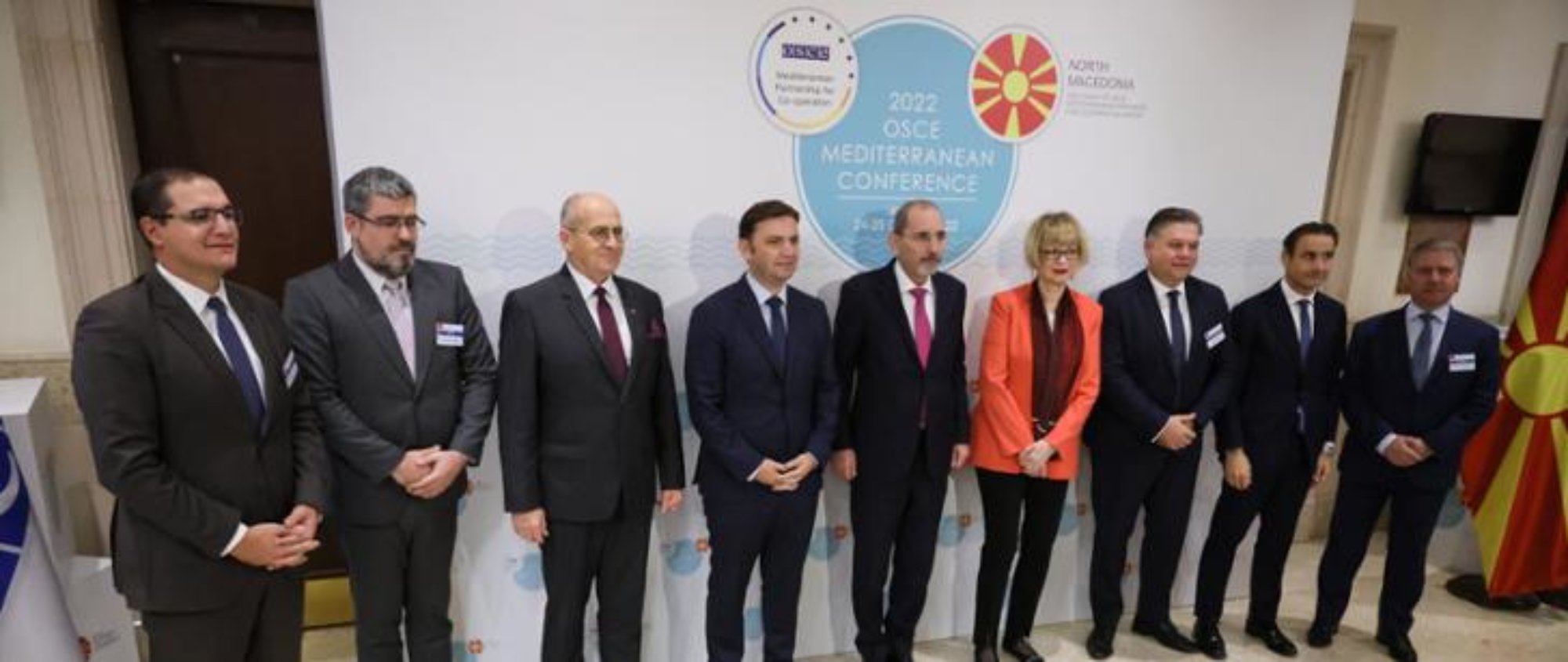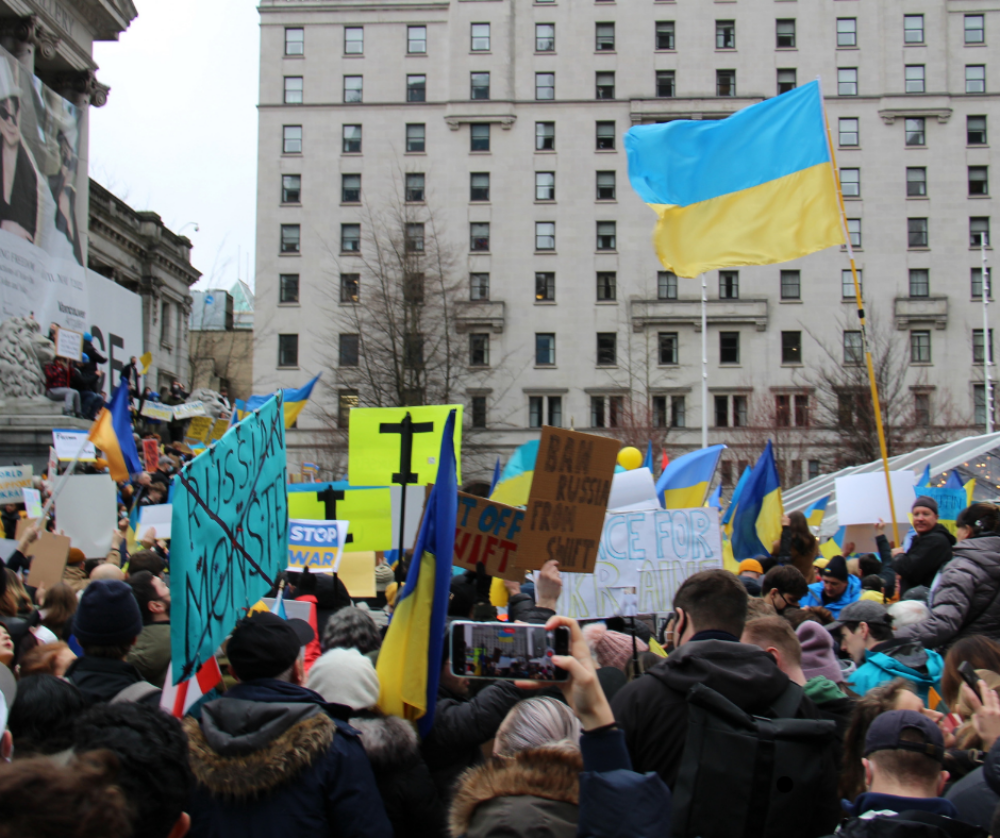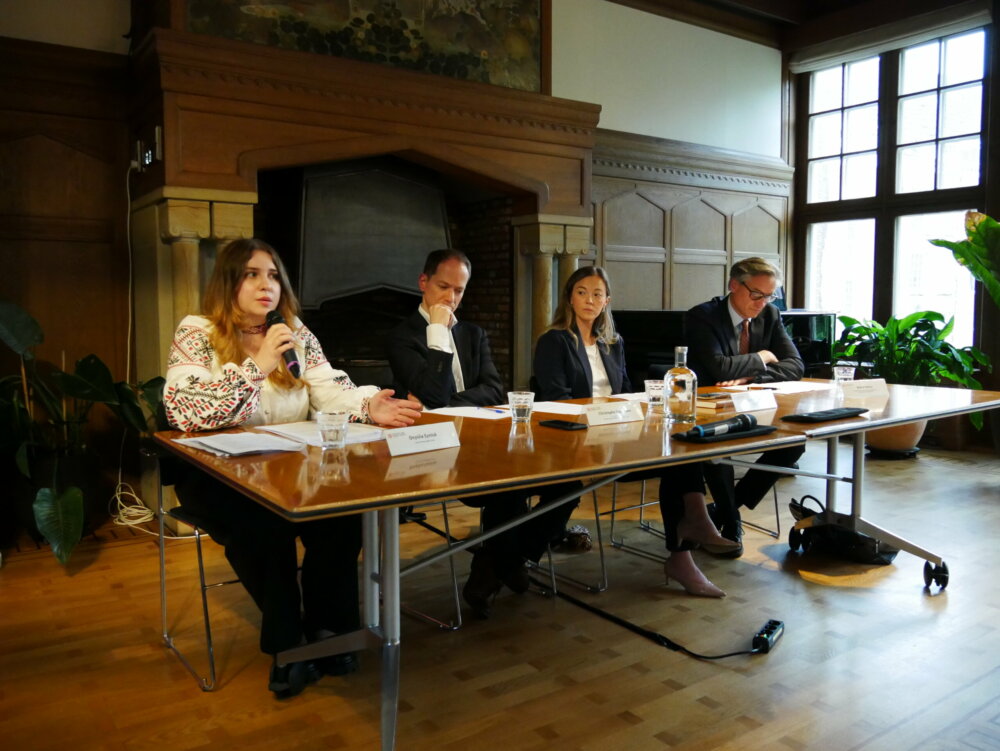B. Peterman/Polish MFA

Shifting Dynamics at the OSCE Mediterranean Conference
The annual OSCE Mediterranean conference has become a routine affair for OSCE representatives to voice repetitive talking points on the Middle East & North Africa (MENA) and its links to neighbouring OSCE states. Dialogue at the conference has traditionally focused on issues that supposedly originate in the MENA region and cause repercussions in OSCE states.
The 2022 edition of the conference, which wrapped up on October 25, was an opportunity to break away from this routine. The Russian invasion of Ukraine, which is taking place entirely in the OSCE area, has flipped the dynamics of the MENA-OSCE relationship as it poses devastating indirect threats to security in the MENA region, particularly to food security. Moreover, the MENA region is strongly impacted by insecurity on the global energy markets, sparked by the war, in some states for better and others for worse.
Notably, the OSCE Mediterranean Partnership for Cooperation only includes six MENA states – Israel, Algeria, Jordan, Egypt, Morocco, and Tunisia – meaning certain key players from the region are excluded. With this in mind, was the recent OSCE Mediterranean conference a suitable forum to discuss these matters and, if not, what was its purpose?
When tracing the recent history of the OSCE Mediterranean conference, a few recurrent themes have been central over the past 10 years: counter-terrorism, protection of refugees, and economic empowerment (particularly for women). The conference is organised by the Chair of the Contact Group with the Mediterranean Partners for Co-operation, which changes between OSCE states annually. As the conference is organised by an OSCE state, countries north of the Mediterranean have more control over the agenda than their partners to the south. This year’s organiser is North Macedonia despite the fact that the conference was held in Jordan.
Shifting Dynamics in 2022
Just as the COVID-19 crisis did in recent years, Russia’s war against Ukraine has shifted the dynamics of relations between the OSCE and its Mediterranean partners. In conferences prior to last year’s, the main themes would represent challenges that originated south of the Mediterranean and resulted in repercussions that spill over into the north. This year, that dynamic has been flipped by a war in Europe that poses spill over threats to the OSCE’s Partners south of the Mediterranean. The most pressing of these threats has manifested itself in widespread food insecurity.
Tunisia has engaged the IMF to negotiate a $1.9 billion rescue package in the face of nation-wide food shortages, Morocco’s food insecurity following drought has been compounded by the disruptions to Ukrainian grain export, and Jordan is receiving emergency funding from OPEC in the face of similar circumstances. However, none of the OSCE’s Mediterranean Partners are more vulnerable to food supply shocks than Egypt. According to the Middle East Institute, the most populous country among the Partner states is the world’s largest importer of wheat and among the world’s top 10 importers of sunflower oil. As of the launch of the invasion, 85% of its wheat comes from Russia and Ukraine, as does 73% of its sunflower oil.
Whereas the effect of the war on global food supply is universally negative for the countries listed above, fuel disruptions resulting from the conflict have a much more complex impact on the MENA region. Oil producing nations, Libya and Algeria among them, stand to benefit from rising fuel prices and high demand in Western Europe following its sanctions on Russia. OPEC+, which includes the two aforementioned OSCE Partners, made it clear by its announcement of production cuts in early October that it recognises its advantageous position and intends to exploit it.
Israel and Egypt have also benefited from Europe’s scramble to find new sources of energy as the bloc diversifies from the Russian market. In mid-June, the two states signed a tripartite agreement with the European Commission that will allow for Israeli gas to be brought via a pipeline to Egypt’s gas terminal on the Mediterranean, where it will be liquefied and transported to EU member states.
However, other MENA countries that do not produce oil will suffer the same supply shortages and resulting price hikes as their European counterparts north of the Mediterranean. Morocco is among these non-producing countries and Tunisia’s failure to attract investment to extract its energy reserves has forced it to become a net importer of oil and gas. Much like in the case of food insecurity, the energy insecurity of these two OSCE Partner countries is a repercussion of the war in Ukraine.
The OSCE Mediterranean Conference as a Platform for Dialogue
Unsurprisingly, food security and energy security were on the agenda for this year’s conference. However, with several key regional actors not present at the table, how relevant was the conference for dialogue on these shifting dynamics? In the case of food security, some of the hardest-hit MENA countries are not among the OSCE Mediterranean Partners. Lebanon, for example, was already facing multiple crises prior to the war and its dependence on Russia and Ukraine for 80% of its wheat imports has put it in an even more precarious state.
Moreover, key winners, losers, and decision-makers in recent energy developments are located in the MENA but are not among the OSCE’s Partners. The aforementioned OPEC+ announcement to cut production was spearheaded by Saudi Arabia, which occupies a rare diplomatic position, having close ties to both the western and eastern superpowers of the OSCE, the U.S. and Russia respectively. Without the hegemon of the Middle East at the table, the Mediterranean conference was limited in its capacity to tackle the question of energy security.
Priorities of the Host Country
Despite not being well positioned to deal with regional matters, this year’s conference gave the host country a platform to highlight its national security agenda. Though Jordan did not organise the event, the Jordanian Foreign Minister Ayman Safadi and Jordanian King Abdullah II managed to convey their priorities in statements and meetings on the margins of the conference. Foremost among those priorities was clearly the Palestinian cause, with Safadi stating: “Security in the Middle East begins with resolving the Palestinian-Israeli conflict and requires ending the occupation so that the region can live in peace and security.”
The Foreign Minister also drew comparisons between the occupation of Palestine and that of Eastern Ukraine, when condemning Putin’s invasion: “There is an occupation a few kilometres away from where we are sitting today. Therefore, our rejection of the occupation is a principled position”. The Palestinian issue was brought into sharper focus on the second day of the conference when the news broke of an Israeli raid that killed five and injured twenty in the West Bank city of Nablus.
An Obsolete Tool?
The 2022 OSCE Mediterranean conference took place at a time when relations between the OSCE and Partner states were the reverse of their historical norm, with a war in the former having spill-over effects in the latter. However, in the absence of key MENA stakeholders, the conference was unable to approach pressing contemporary issues such as food and energy security. In order to avoid becoming an obsolete tool for cooperating on security matters with the MENA region, the OSCE should seek to expand its partnerships in the region, particularly to include key geopolitical decision-makers such as Saudi Arabia. Until that time, the conference will only serve as an opportunity for certain states to unilaterally push their priorities.
Joe Ward is an intern at the Netherlands Helsinki Committee. He holds a degree in International Studies from the University of Leiden.



Comments
* Your email address will not be published